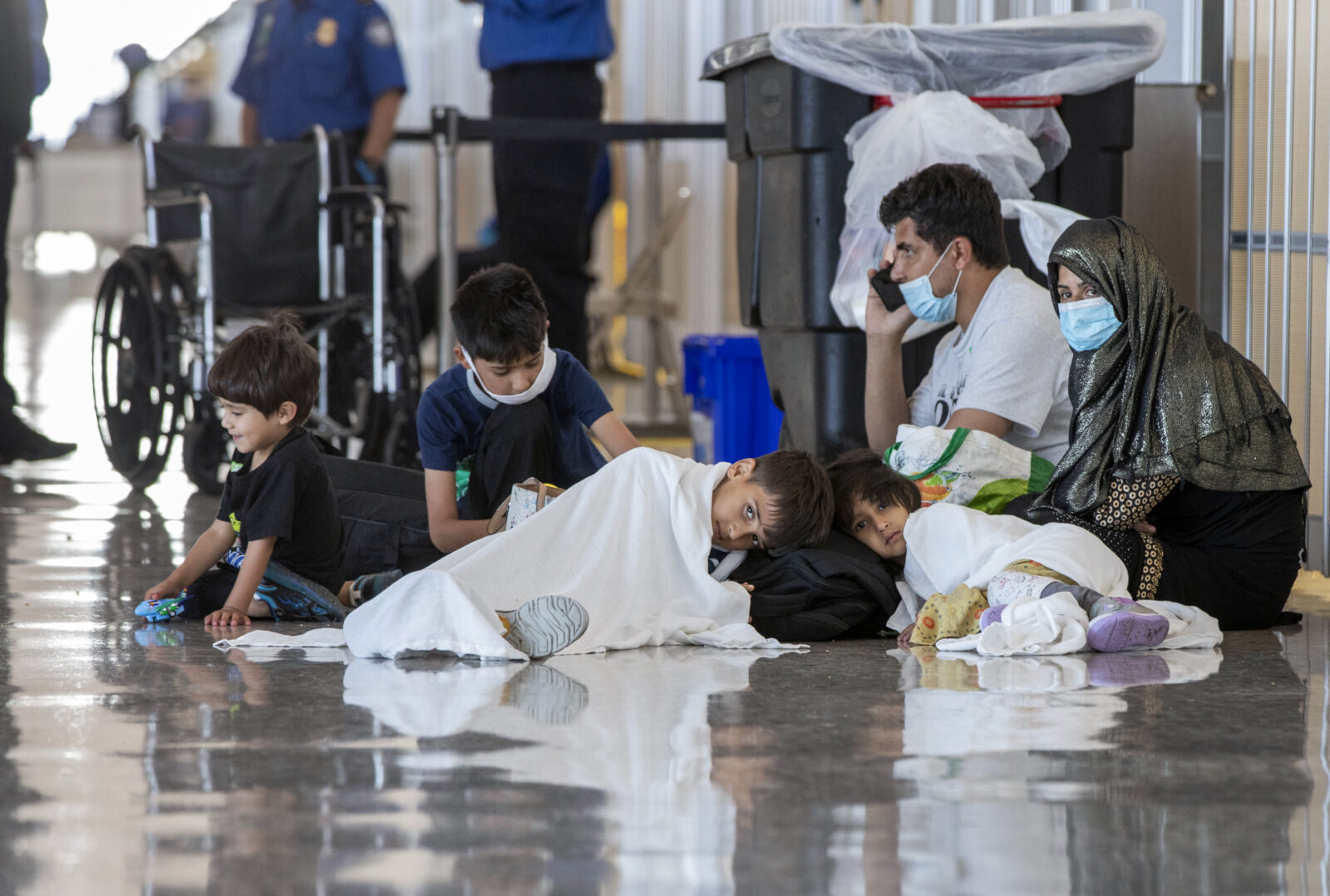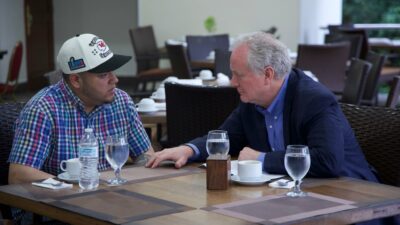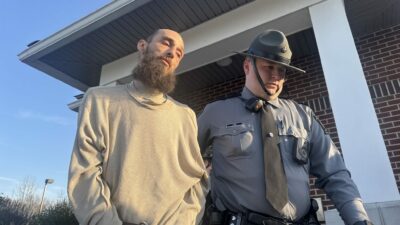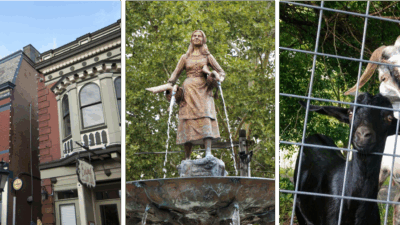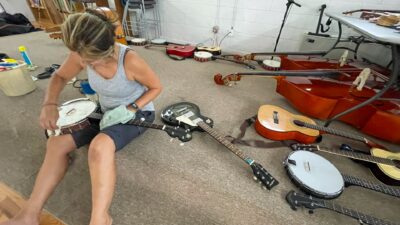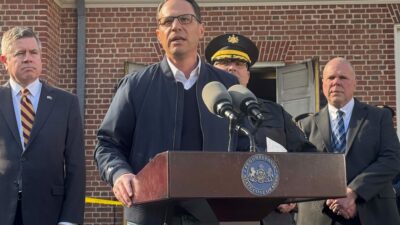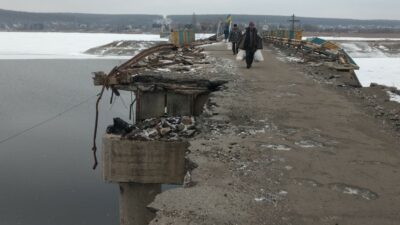FORT MCCOY, Wis. — Hashima was able to leave Afghanistan, but now cannot find her husband.

Zubair Mansuori told his wife to take their three children and seek safety in Turkey, as the Taliban’s grip tightened in the country. He hopes to reunite with them.
Edrees Ahmad Kakar was flown out by military helicopter with his father and eight other family members, after his family became a target of the Taliban. Their offense? His father is a journalist.
Kakar, Mansuori, and Hashima are among the more than 60,000 people who will be resettled to the U.S. from Afghanistan, following an unprecedented rush to leave the country as the U.S. withdrew troops on Aug. 31. They remain at Fort McCoy, awaiting resettlement.
In the coming months, a wave of Americans-to-be will settle in cities and towns across the country — many to Postindustrial communities.
We talked to four people who fled their homeland.
These are their stories.
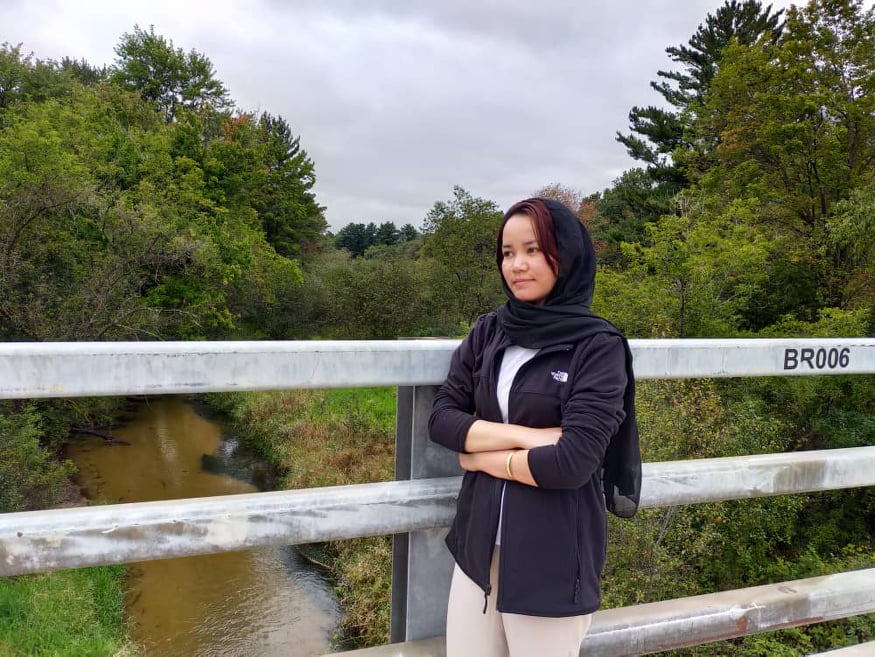
Hashima, 23
I’m so happy. I am so happy for all these things, from food to the people. They’re ready to help in every place. They’re like friends. They are like family.
So I think we should thank God for the American people.
This was my dream. It was my wish to come to America, but not in this situation. We escaped, just me and my sister.
My husband couldn’t come. I’m hurting (over this). He’s also working with an American company and really, he is on the radar of the Taliban. I went to my home and checked in for my husband, but my husband is not in my home. He is scared to be there, and now I am confused and I’m not OK. It’s been two weeks, and I’m trying to be happy, but it’s daunting.
I want to have freedom to reach my dream.
I have just one pen, just one notebook. And every day I take that and I come, I sit under trees, anyplace that I feel release, and I just write my wishes.
I write my targets. What should I do from here? I should restart.
And how can I continue for my future?
I want a good, secure life. And I want to reach my goals. I want to represent Afghan girls and Afghan people in America.
I know that here every human has rights and has freedom to reach their dream.
I want to have freedom to reach my dream.
I want the Taliban to leave Afghanistan. I don’t want to continue that government in Afghanistan. It’s hard for kids, women — anybody.
When the Taliban came, all humans were shocked because of them. I think they don’t know that we are human.
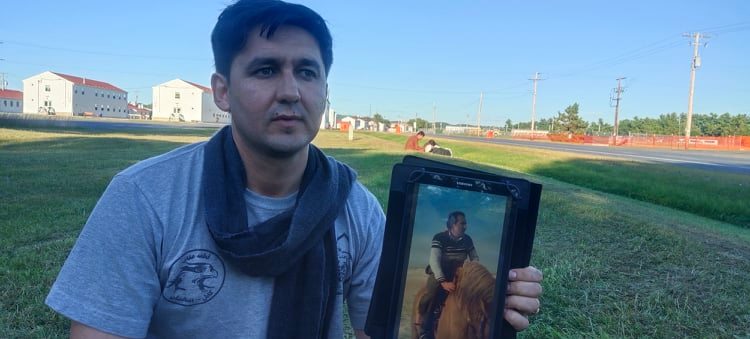
Zubair Mansuori, 31
I used to work as an interpreter with the American military based in Kabul.
My father, Ashrafuddin Mansuori, was assassinated because he used to work as an employee of the National Security Directorate, in the past. He was a target. Then they conducted the attack on Oct. 21, 2020.
He was wounded and transferred to a hospital, but he died eight days later.
I came here alone, so the situation was not good. I asked my family to leave Afghanistan already, but I couldn’t leave with them because I was working as an interpreter. So I asked my family to move to Turkey.
Now they are in Turkey and they live as refugees. Hopefully I can bring them here. I’m married. I have one son, 3, and one daughter, 2.
It’s very painful for me to remember them. I want them to live alongside me.
The situation in Afghanistan got worse (quickly). We didn’t have any choice. It’s impossible to negotiate with the Taliban. They were killing people, especially those who worked with the U.S. military, and they were searching for us, going from compound to compound.
I made the final decision to come here alone.
I came here alone, so the situation was not good.
It was very challenging to get to the airport at first. There was not a specific program to follow and there was a rush of people. I managed to get myself inside the airport, along with some of my colleagues; then we had a flight on military airplanes.
Here, it’s still challenging for me to adapt with everything and a new culture. Step by step I have to follow and then I should adapt with everything.
The most painful thing for me is that I left my home country, and we didn’t have any plans to leave our homeland, but suddenly it happened.
We left our relatives and our friends. But now I hope we find a good future.
Our whole lives, we have been refugees. We want to live simply as citizens of a country, like the U.S. or Canada, so we don’t have to suffer anymore. Because it’s not tolerable.
I hope a new government, which would be inclusive, should come and run and rule Afghanistan. So hopefully the (Taliban) will be defeated.
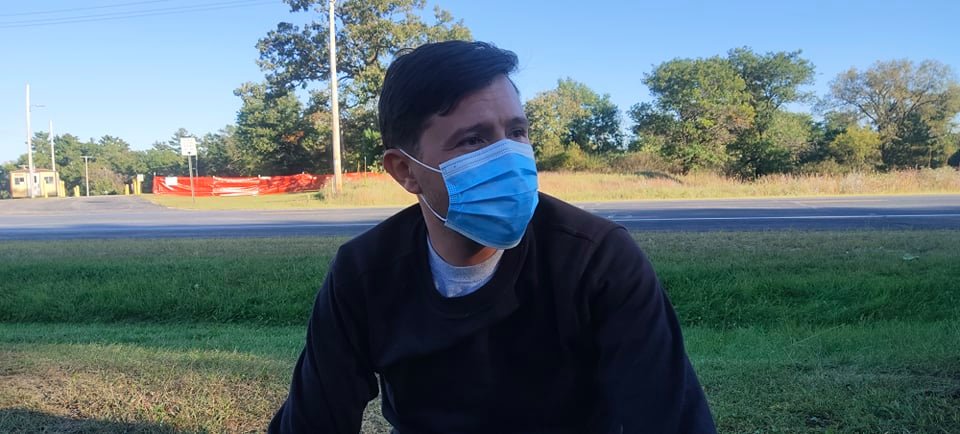
M. Azizi, 35
This is not easy, I have been working with the U.S. military since 2014 as a translator or advisor. I was able to bring my spouse and two children, but we left my father, my mother, sisters, and I’m concerned about their lives, their future. Because it’s hard to live under the control of the Taliban.
(It’s like) living under illiterate people. They’re only ruling under religious matters. It’s the 21st century. It’s not the 14th or 15th century. Everything has changed. We’ve been to the moon and other planets, but here, we’re still stuck with religious measures. We have to look to the future.
This is our second time as refugees. The first time, my father decided to leave Afghanistan during the Russian invasion (to go to Pakistan). We later returned to Afghanistan.
Now, in Afghanistan on the streets…the Taliban look like zombies because there is no humanity. They are like a human, but not real.
We came here not only for our future, but for our family’s future. There are a lot of things the Taliban are doing behind the curtain, but in front of the media, they are saying something else. Believe me, they don’t change.
…the Taliban look like zombies because there is no humanity.
They’re still talking about females, how females are not allowed to walk alone. Hospitals are different for women and men, and how schools should be different.
To get out, we had to hide. Our friends were saying the Taliban came to their compounds and were looking for them, so we had to change our compounds. The U.S. military helped us to get out.
At Fort McCoy, the weather is so good, and everything is so great. It’s a beautiful, a very clean area. The U.S. Army is helping us, so much. They listen to our questions.
I hope the Taliban are defeated again, 100 percent. Some people are selling things like pillows and mattresses just to earn money to feed their families. They don’t have any place for people who don’t obey them. And those people are uneducated. But the country has changed, the people have changed, many of them are educated and they will never accept the governance of the Taliban.
I am thinking of my children’s future.
I remember when we came from Pakistan to live in Afghanistan, there were tents and we were studying in tents on carpet. I believe one day, my son won’t study in that situation.
Hopefully the next generation will use their education to make a better Afghanistan.
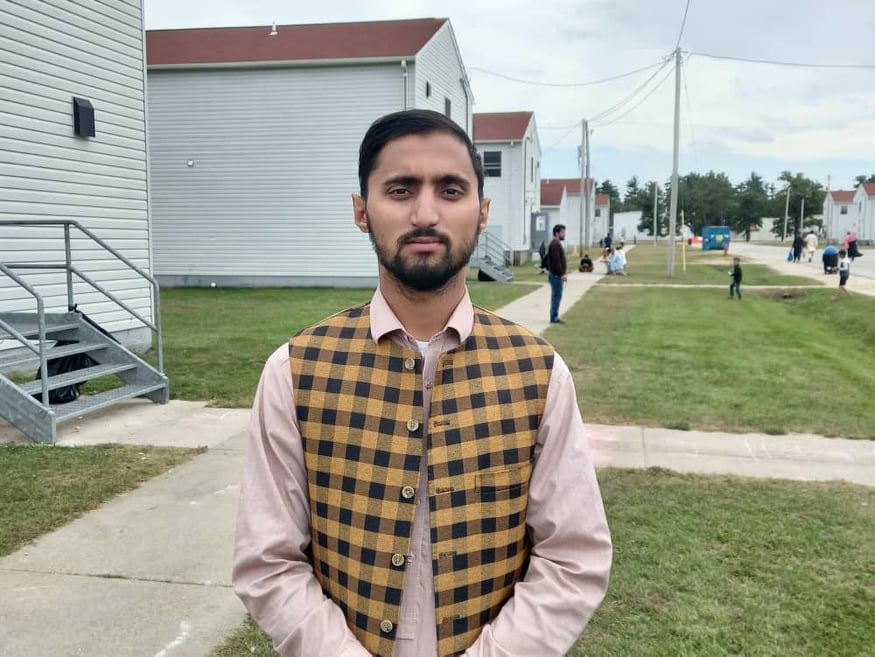
Edrees Ahmad Kakar, 26
My father is a senior journalist.
He was mostly working with U.S. forces, NATO, covering issues of the U.S. Embassy.
So once my father published an interview with a U.S. general, and it was on social media. There were hundreds of Taliban commenting on that post, and they were saying that this journalist needs to be killed, he is working for the U.S. So there were a lot of fears before the fall of Kabul.
He was targeted. My father’s name was on a ‘kill list’ that was on social media. So there were a lot of fears that we wouldn’t survive there.
Nowadays, Taliban are searching for journalists’ houses and meeting journalists, and they are arresting people. There was no way to stay there.
President Biden said, we are not “refugees.” We are “new Americans.”
We were evacuated with my family. My father had a relationship with the U.S., and we rode by military helicopter out of the country. And we were very thankful to them because it was a really big concern about how to enter the airport. My father, my mother, sister, my wife, son, and four brothers — we have 10 members in our family.
We were allowed to take one bag per person. But we didn’t get our bags back yet. (At this point) we do not have any clothes and our shoes are broken. When we sleep, we wash our clothes.
So many of our friends and some of our family, they’ve lived in the U.S. for many years. We hear there is freedom of religion, of freedom, of speech, freedom of culture. So we don’t think that we will face some problems and we hope we will have a good life in our new country.
And, President Biden said, we are not “refugees.” We are “new Americans.”
HOW WE DID THIS STORY
Afghan Journalist Zubair Babakarkhail reported on the war in his country for more than a decade, writing for USA Today, The Guardian, Stars & Stripes, and other publications.
His work as a reporter put him directly in Taliban crosshairs. So when the armed extremists retook Afghanistan following a devastating 20-year war, Zubair and his family fled for their lives.
Along with thousands of others, Zubair and his family as of press time are staying at a military base, Fort McCoy in Wisconsin until his visa application is processed and he can start his new life in America.
Ever the newshound, Zubair conducted these interviews during his time there, recording the conversations on his phone and sending them to us. Postindustrial then edited their comments only for clarity and brevity.
Postindustrial felt it was important to hear directly from those who were forced to leave their homes, extended families and friends as America’s longest war ended in Afghanistan.
To protect her loved ones still in Afghanistan, Hashima asked that Postindustrial only use her first name.
CARMEN GENTILE AND KIM PALMIERO

